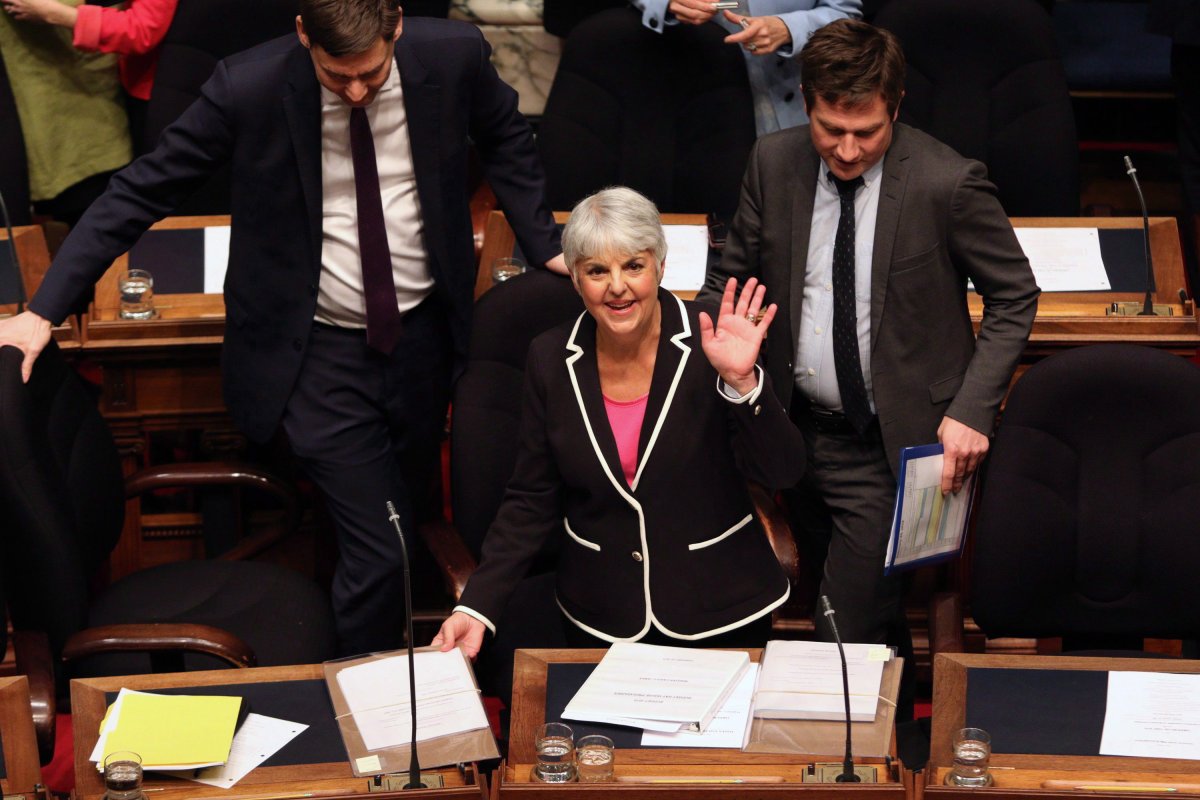The B.C. government is now projecting a $1.35 billion surplus for the 2018-19 fiscal year, up from a projected $219 million surplus in February’s budget.

The province’s financial strength is based on higher-than-expected income tax revenues, with $1.7 billion more coming into the provincial coffers than expected.
The financial numbers also show a reduced reliance of the province’s overheated housing market. Finance Minister Carole James says the province has seen a decrease in property transfer tax revenues by $150 million from what was originally forecast.
“When we formed government, we committed to do things differently. We promised British Columbians that we would take on the big challenges in our province from the housing crisis to child care,” said Carole James, Minister of Finance. “Today’s results show that our plan is working and that investing in people pays dividends. We’re tackling our province’s major challenges head on and, at the same time, eliminating B.C.’s operating debt for the first time in over 40 years.”
WATCH: Will the BC NDP be able to fund their 2018 budget initiatives?

Month over month, numbers have shown housing prices are moderating in Metro Vancouver. James says this has showed the province can manage the economy while implementing measures to slow down the housing market.
The province’s speculation tax has still not come into effect.
“The second quarter results also show very positive results in terms of moderation in an out of control housing market,” James said. “The housing crisis has hurt people: families, seniors, students and has certainly hurt businesses who are trying to attract and retain employees.”
“Today’s results show we can provide stability in the housing market while growing a strong economy.”
James says the province has also been hit harder than expected, with losses at ICBC and a massive bill for wildfire fighting.
The B.C. government is still struggling to put out an ongoing “dumpster fire” at ICBC. As part of second-quarter financial results, the public insurer is forecasting a larger than expected loss of $890 million this fiscal year.
ICBC has posted a net loss of $582 million for the first six months of the current fiscal year. The public insurer lost $1.3 billion last fiscal year.
“The challenges were not created over night and we are not going to fix them overnight,” said James. “We wanted to see some positive direction and we haven’t seen this yet.”
The provincial government has spent $572 million for firefighting costs linked the 2018 wildfire season, the worse in the province’s history.
- Posters promoting ‘Steal From Loblaws Day’ are circulating. How did we get here?
- Canadian food banks are on the brink: ‘This is not a sustainable situation’
- Is home ownership only for the rich now? 80% say yes in new poll
- Investing tax refunds is low priority for Canadians amid high cost of living: poll




Comments